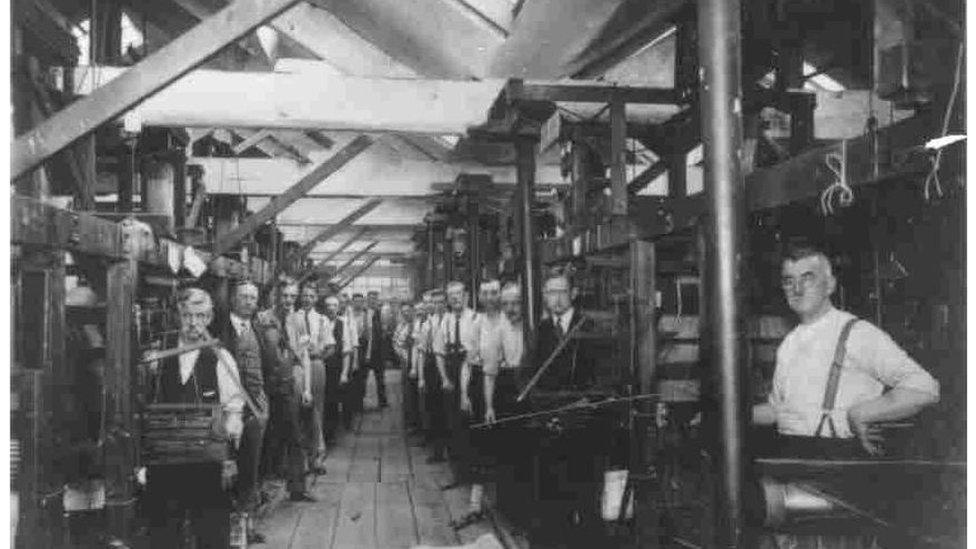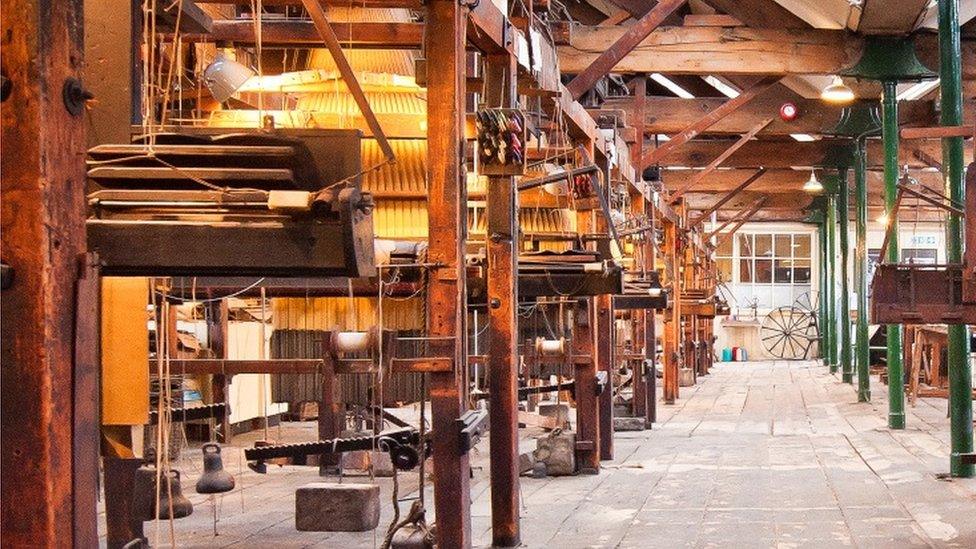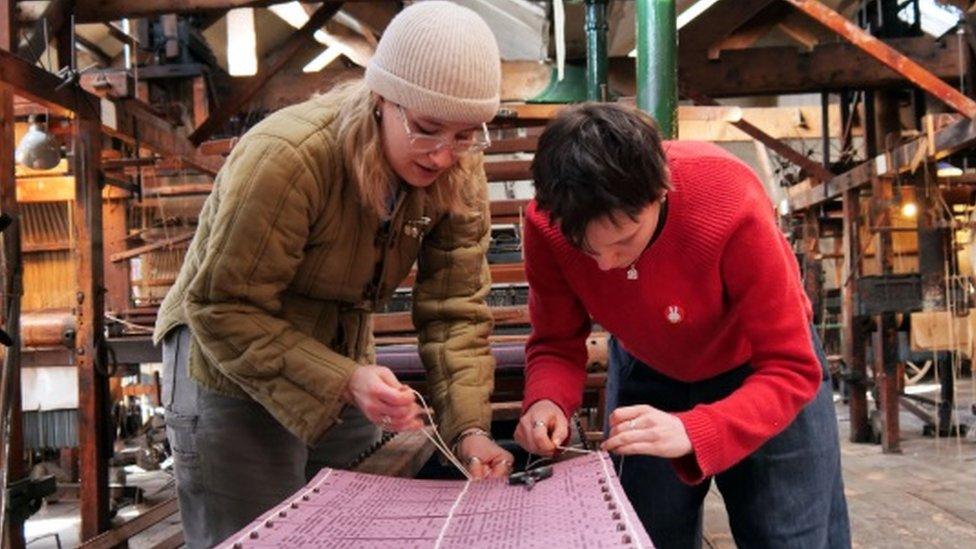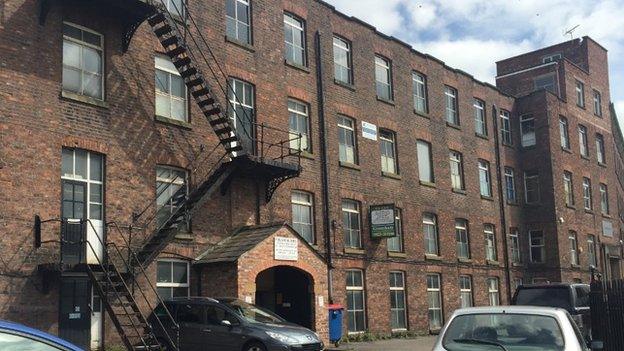Paradise Mill in Macclesfield to 'conserve endangered craft'
- Published

Macclesfield was once the world's largest producer of finished silk, with 5,000 looms and 71 mill factories
A historical silk mill has been given a new lease of life in a bid to "conserve the endangered craft".
Paradise Mill, which was built in Macclesfield, Cheshire, in 1862, ceased operations more than 40 years ago.
But the grade-II listed mill has now reopened as part of the Silk Museum after a major restoration project.
The team has restored two of the 19th century looms with plans to repair more of the Jacquard handlooms and bring them back into working order.
"The looms tell remarkable stories of silk production in Macclesfield," said Emma Anderson, director of the Silk Museum.
"It is essential that they are kept in working order so that visitors can experience the incredible sights and sounds of these historically-important machines."

Part of The Silk Museum since 1984, Paradise Mill has been brought back to life
She added: "We need to revive and expand the technical knowledge of how to operate and care for them so they can continue to inspire future generations of weavers for years to come."
The mill produced luxury silk goods for international buyers including retailers such as Liberty of London, until it finally closed in 1981.
Daniel Hearn, who is part of the team who has taken on the task of restoring the looms, said it had involved a "considerable effort".
"There is more work to do, and still more to learn," he said.
"We are taking the first critical steps in ensuring that this niche type of Jacquard handloom weaving remains operational within the extraordinary time capsule that is Paradise Mill."

Ruth Farris and Bea Uprichard are pictured threading the new jacquard cards
Textile students Bea Uprichard and Ruth Farris, at Manchester Metropolitan University, have designed and woven a new silk - the first one to be created at the mill in decades.
"It was magical," said Ms Uprichard.
"We then took it in turns to weave for two full days until we had about a metre of fabric - enough to cut off the loom."

Why not follow BBC Manchester on Facebook, external, X, external and Instagram, external? You can also send story ideas to northwest.newsonline@bbc.co.uk, external
Related topics
- Published19 June 2015
